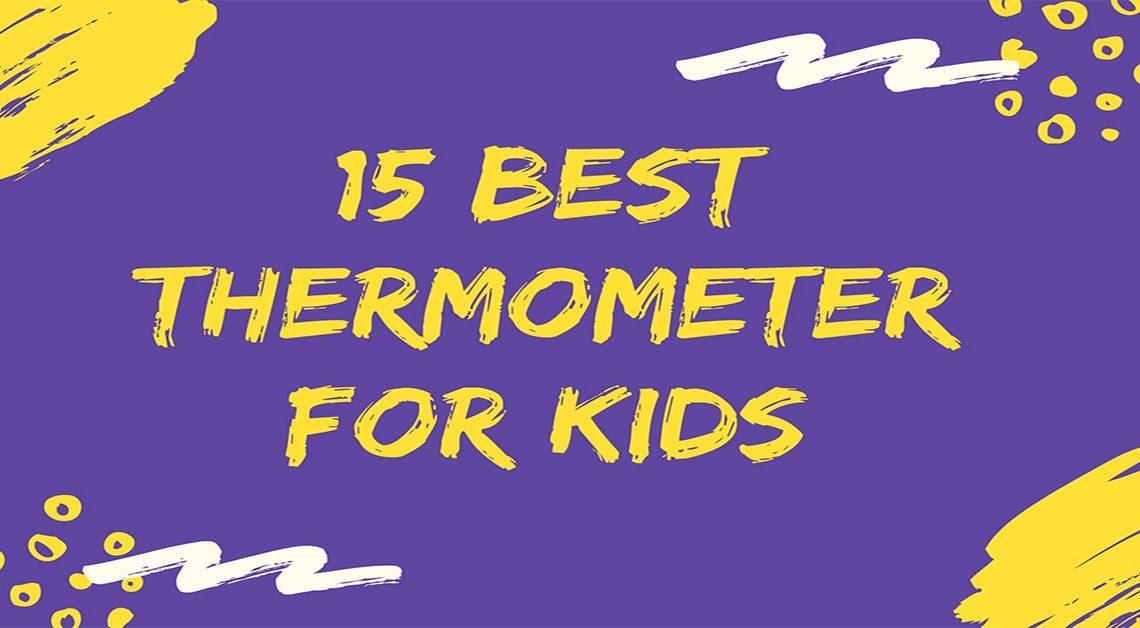
Kids can only cry and act abnormally when they feel bad. They cannot tell you clearly what is wrong. It is up to you to find out what may be wrong to save the little person from whatever is bothering him.
The first thing is parents need to check the accurate readings of the temperature of the body. Now you can easily put your hand on the forehead and guess but that is not very accurate nor very informative. In order to make meaningful decisions, you have to check the temperature using a reliable thermometer.
But, the kid doesn’t always respond to the baby thermometer well. Therefore, you have to consider a number of factors when you are out to buy the best thermometer for kids. The buying guide and the reviews of the best will give you a clear idea about it all.
Our Best Thermometer for Kids
- Kinsa [Old Model] Smart Ear Thermometer for Fever.
- iProven Best Digital Medical Thermometer
- ANKOVO Thermometer
- Exergen Temporal Artery Thermometer Tat-2000c Scan.
- Braun Digital No-Touch Forehead Thermometer.
- Purple Safety Baby Digital Thermometer
- Braun Digital Ear Thermometer ThermoScan 5 IRT6500.
- Vicks Baby Rectal Thermometer 1 ea.
- iProven Oral Thermometer for Fever
- Easy@Home Smart Basal Thermometer.
- H HighMex Thermometer Digital Baby Rectal thermometers.
- Generation Guard Clinical Digital Thermometer
- iProven Digital Basal Body Thermometer – Track Your Cycle.
- Femometer Basal Thermometer for Ovulation.
- Femometer Digital Basal Body Thermometer
Best Thermometer for Kids to Check More Accurate Readings
A list all about the smart thermometer, rest assured, that helps you choose the best pick from listed thermometer options for temperature reading accurately to keep safe your kids and adults.
Looking for the best baby thermometers that are very easy to use on babies to check temperature data. Apparently. You need to place it on the ear. It not only takes the temperature of babies but also the adults. It’s the best ear thermometer to use for the most accurate readings.
In fact, it will satisfy you with its user-friendly thermometer as it has a huge backlit display to show you the exact data. Furthermore, it can connect to an app to keep a record of your family temperature and also required visits to a doctor. This is the thermometer you need to provide you with guidance.
When it comes to accuracy, it is quite accurate. It is fast as well- just needs around 1-2 seconds to know. However, it gives you different readings just moments apart.
Overall, Kinsa smart thermometer offers accurate measurement to get exact data for urgent treatment.
Pros
- It provides very fast readings.
- Very easy to use.
- It can connect to an app.
- Quite accurate.
- Very durable.
- Good value for the money.
Cons
- Gives different readings moments apart.
2. iProven Best Digital Medical Thermometer- Oral and Rectal Thermometer.
This is one of the best thermometers that offers you flexibility. You can use it as an oral thermometer or a rectal one if you want. Both can be suitable for different age groups.
Furthermore, those digital stick thermometers take only 10 seconds for temperature readings. It is usually accurate up to 1.5 degrees. Other than that, it has a nice display that shows the results quite clearly. It even shows smiley faces to let you know the condition.
The unit can even beep to let you know your reading is ready but the beep may be too low to hear for many. Apart from the tip being flexible, it is waterproof as well. So, you can clean the thermometer easily and store it peacefully too. Overall, it offers good value for the money.
Pros
- Very flexible as you can use it as both an oral one and a rectal thermometer.
- Quite fast to read the child’s temperature accurately.
- Easy to clean and store.
- Clear screen.
- Indicating sound and faces.
Cons
- It may not be very accurate.
3. ANKOVO Thermometer for Fever Digital Medical Infrared Forehead and Ear Thermometer.
The Ankovo thermometer is yet another one that lets you measure temperature in any of the two ways you like- forehead temperature or ear. It is more convenient to use the forehead option. Nevertheless, you can easily switch between the two just at the click of a button.
Apart from that, the thermometer shows you the temperature on a nicely backlit display screen. You have the option to set a switch between the two units as well- Celsius and Fahrenheit. Furthermore, the unit has an in-built alarm system too.
All of these will make sure you need to do when the temperature is too high. However, the ear option is not always very accurate. Apart from all that, this is quite a safe unit to use.
Pros
- Switches between two modes- forehead and ear very easily.
- You can switch the unit as well.
- The backlit display is clear.
- It has an alarm system.
- Safe for use to get a child’s temperature data.
- Usually accurate.
- It takes less time.
Cons
- Ear mode does not provide the most accurate temperatures.
4. Exergen Temporal Artery Thermometer Tat-2000c Scan.
You have to put this thermometer on the forehead for a very short while to take a reading. It does its job fast and easily. So, you have a chance to easily measure the little one’s temperature, even a person’s temperature as well that’s what Exergen thermometer may be able to satisfy you.
Apart from that, the unit is usually very accurate at first but with time it may get a bit inaccurate. Also, if you somehow click the wrong buttons at first, it will be hard to understand what this thermometer is doing. Otherwise, everything it does is great and it communicates the temperature to you in a good way.
Pros
- Very easy to use.
- Most reliable for consistent readings.
- Good value for an infrared unit.
- A quite readable baby gear.
- Quick temperature-taking thermometer.
Cons
- May get inaccurate with time.
- Wrong clicks will confuse the user.
5. Braun Digital No-Touch Forehead Thermometer.
If you do not want to disturb a sleeping child then this Braun thermometer may be what you are looking for. This infrared thermometer does not require you to touch the thermometer to the kid’s head. All you have to do is bring the thermometer close to the head (at least two inches).
Then, the thermometer takes the reading and displays it using colors on a nice screen. However, you may find that the unit is not very accurate. But, it sure is easy to use. For the time it lasts, it offers good value.
Pros
- It does not require any touch.
- Very easy to use.
- It lasts.
- The colored screen gives the necessary signals.
Cons
- Not very accurate.
6. Purple Safety Baby Digital Thermometer – for Infants, Babies, Kids.
This digital thermometer is one you can use in multiple places. In fact, you can use it as an under the arm or an oral thermometer. It has been approved to be safe for use. Furthermore, it is quite an accurate thermometer.
The backlit LCD display does a great job at communicating temperature. Furthermore, it has a beeping system in it and turns off automatically after ten minutes saving battery life. The only thing it is not good at is time- it takes a bit too long to take a reading. However, it still offers a lot of value for the money.
Pros
- You can use it in two ways.
- Quite accurate.
- It has a very good display.
- It has an alarm system.
- The auto turn-off feature saves battery life.
- Good value for the money.
Cons
- It takes too long to measure.
7. Braun Digital Ear Thermometer ThermoScan 5 IRT6500.
These ear thermometers ensure that hygiene is being maintained with its features. Apparently, it has disposable lens filters that you can use to switch between users. Apart from that, it is quite easy to clean as well.
The digital thermometer gives quite a clear reading on its LCD display. It is very easy to use thanks to its being an ear thermometer. Apart from that, the unit may not be the most accurate. It is quite fast in its work and it very safe for use as well.
The price is within a reasonable range as well.
Pros
- Disposable lens filters ensure hygiene.
- The LCD screen is of good quality.
- Quite easy to use.
- Very easy to clean.
- Reasonable price and safe for use.
Cons
- Not very accurate.
8. Vicks Baby Rectal Thermometer 1 ea.
The Vicks rectal thermometer with its flexible tip does a great job at reading the temperature for babies. Apparently, it is quite user-friendly as well. It is as easy to use as a rectal thermometer usually is.
Apart from that, it is very accurate in its measurements. The backlit display lets you know the temperature clearly But, the back light may stop working at some point. Also, this unit is waterproof so you can clean it quite easily.
The unit is budget-friendly as well.
Pros
- Quite easy to use for a rectal thermometer.
- The display provides a clear reading.
- Easy to clean.
- Quite budget-friendly.
- Safe for use.
Cons
- All parts do not last for long.
9. iProven Oral Thermometer for Fever – Adult Fever Thermometer – Readings in 10-20 Seconds.
If you are looking for an oral thermometer then this iProven thermometer is one that is easy to use. Apparently, it has a flexible tip that makes it easy to use. Also, the unit is quite easy to clean so it maintains the hygiene as well.
However, it is not the most accurate. It takes a while to take a reading as well. Apart from that, it has a beeping system but it may not always be very loud. The unit is durable and quite affordable too.
Pros
- Quite easy to use.
- Very easy to clean.
- Safe for use.
- Durable and affordable.
- It has a beeping system.
Cons
- Take too long.
- Not accurate.
10. Easy@Home Smart Basal Thermometer.
If you need a thermometer to track your periods, ovulation or pregnancy then this may be the one you need. Apparently, it is quite accurate in what it does and it is also quite easy to use. However, it does take a while to take a reading.
Once it’s don, you can see the result clearly on the backlit screen. That is not where it ends, it also has Bluetooth connectivity to keep track of everything and notify you. On top of it all, it does not cost a fortune either.
Pros
- Tracks periods, ovulation and pregnancy easily.
- Quite accurate.
- Easy to use.
- Affordable price.
- Nice backlit screen.
- Bluetooth connectivity.
Cons
- Take a while to take a reading.
11. H HighMex Thermometer Digital Baby Rectal thermometers.
Looking for an oral or armpit thermometer? Then, this may be the one for you. However, the first use will require calibration and you may not like it.
Other than that, this thermometer is easy to use and will provide quite an accurate reading. Furthermore, it is very safe for use even for kids. You can carry it around and you can wash its waterproof body as well.
The problem is, you may feel that the unit is a bit cheaply made. It is fast as one that measures within 10 seconds but you can find faster thermometers in the market. It offers great value for the price.
Pros
- Very easy to use.
- Quite accurate.
- Moderate speed.
- Easy to clean.
- Safe for use.
- Great value for the price.
Cons
- Requires calibration before first use.
12. Generation Guard Clinical Digital Thermometer Best to Read & Monitor Fever Temperature.
Looking for a thermometer that will let you measure the temperature in many different ways? Then, this Generation guard one may be the one. In fact, it is a rectal, armpit, oral, and axillary thermometer. Do not worry about hygiene because it is waterproof and you will find that it is quite easy to clean.
Apart from that, it has a large display that shows the temperature clearly. Furthermore, it beeps, has a fever indicator, can switch between units. The only trouble is that it can be inaccurate at times. It is very budget-friendly.
Pros
- Quite a flexible unit.
- Easy to clean.
- It provides quite a number of features.
- Good display with backlit.
- Very budget-friendly.
Cons
- Not very accurate.
13. iProven Digital Basal Body Thermometer – Track Your Cycle.
If you need to measure the basal body temperature then this iProven Digital basal thermometer may be of help to you. It will help you keep track of your ovulation cycle. Furthermore, it is extremely accurate.
But, the accuracy comes at a price and the price is a slow speed. The brand admits that it is slow but it can be accurate. It is very easy to use and easy to clean as well.
A few parts like the button may malfunction. Other than that, it offers great value for the money.
Pros
- Quite easy to use.
- It helps you keep track of your cycle.
- Easy to read display.
- Very accurate.
- Great value for money.
- Easy to clean to keep safe.
Cons
- It takes some time.
- The button may malfunction.
14. Femometer Basal Thermometer for Ovulation.
The BBT thermometer comes with more features than a thermometer usually has. Apparently it not only measures your temperature easily but it connects to an app to help you keep track of your ovulation cycle. Furthermore, it has a great LCD display that also has an alarm system.
You can adjust the volume and also the unit. The unit looks great and discreet. However, the battery may not last for long.
Pros
- Quite easy to use.
- Nice display- helpful.
- Connects to an app.
- Keeps track of ovulation cycles.
- Quite adjustable.
- Premium quality with smart look.
- Usually accurate.
Cons
- The battery may run out.
15. Femometer Digital Basal Body Thermometer – Track Your Cycle.
This is a thermometer that can not only measure fever but track ovulation cycles as well. It is used as a basal one. In fact, the thermometer is very accurate but it takes a bit of time to measure- it’s worth it!
It comes with a number of features like app connectivity, beep, unit switchability, a record of the last temperature, etc. Furthermore, it is very easy to clean. However, it may not connect to the app very easily.
Overall, it offers great value as it is quite cheap.
Pros
- Measures fever and tracks ovulation too.
- Keeps record.
- Easy to use.
- Very accurate.
- It comes with a lot of features- very user-friendly.
- Great value for the money.
Cons
- The app may not connect well.
Best Thermometer for Kids: The Buying Guide
These are some of the factors that you should consider when looking for a thermometer for a kid.
1. The Way to Use it:
Kids do not understand much and they are quite impatient. Thus, it can be a challenge to use a thermometer on them. That is if you are using the wrong kind.
You will find different types of thermometers based on how you use them. For example, rectal thermometers, forehead, ear, oral, etc. Each has its pros and cons. And, each suits a different age group.
Let’s find out which suits you more.
Rectal Thermometers: These are thermometers doctors recommend using on babies younger than three years old. It is because the rest of the thermometers may not give a very accurate reading and may be difficult to use on a baby of such age. In fact, rectal thermometers are very accurate.
Forehead and Ear Thermometers: These are very easy to use on kids older than three years. All you have to do is hold them on the forehead or ear of the kid for a few seconds. This is less accurate but extremely easy to use. In fact, it uses the tympanic membrane to take the temperature. The trouble is that sweat and such conditions may alter the reading.
Oral Thermometers: This is the traditional thermometer that you put in the mouth and wait. The problem with this one and kids is that the kids do not know how to hold the thermometer properly and often are not patient enough to hold it for long. Other than that, you have to keep the mouth closed properly for the thermometer to pick the temperature up accurately. But, you can place some of these under the armpit as well.
2. The Type of Thermometer:
There are a few types of thermometer available and without any doubt, the most popular is the digital one. Let’s get to know them.
Digital Thermometers: These are the user-friendly ones with displays that give you an easy reading of the temperature. All you have to do is place it where you have to place it, wait and check the reading.
Infrared Thermometers: These are even more developed thermometers. You may not even have to place the thermometer on the kid’s body, it can receive the temperature form a distance. And, it can also provide the reading very accurately and easily. However, these are much costlier and usually not for home use.
Mercury Thermometers: These are the traditional ones with mercury in them. And, these are the ones you should never use on kids as mercury has been proved to be harmful to human health.
3. The speed of the thermometer:
As kids do not want to wait for long, you do not want the thermometer to take too long either. Therefore, check how long the thermometer is supposed to take to know the correct temperature of the kid. The faster it does, the better it is. In fact, if the thermometer works well from the beginning, you do not have to worry about how long it takes until its battery runs out.
4. The accuracy of the thermometer:
A thermometer may measure the temperature in two different units. It may be Fahrenheit or Celsius. But, let’s talk in Fahrenheit now.
You should make sure that even if the thermometer is inaccurate, it should not exceed the inaccuracy of 1-2 Fahrenheit.
Another thing you have to consider is the range. It is safe to choose a thermometer that measures temperature from a range of 96 Fahrenheit to 109 Fahrenheit.
Consider both of these and you will get a reading that may not be accurate but it won’t cause any danger either.
5. Safety Concerns:
Since you will be using the thermometer on kids, you need it to be safe. The thermometer should never pose a choking hazard. Check other risks as well and make sure that the unit is harmless.
6. The Ease of reading:
Most digital thermometers come with an LCD display that clearly shows the temperature of the body. You have to check that this screen is very clear and the overall light combination suits the eyes. If you want the thermometer to show something more then you should look for such a feature too.
7. Other Features:
Many thermometers offer extra features like a fever alarm or a warning about the temperature if it is too high. As a clueless parent, you may find the guidance of the thermometer very helpful for the most accurate reading. So, if you are looking for such features, make sure you find a unit that provides them. Because there are many out there that do.
Final Words
Thermometers are not just devices to measure temperature anymore. Their features allow them to do a lot more than just measure and convey. With greater features, the price rises as well.
You know what you need and what you have to consider. It’s time you make a choice.

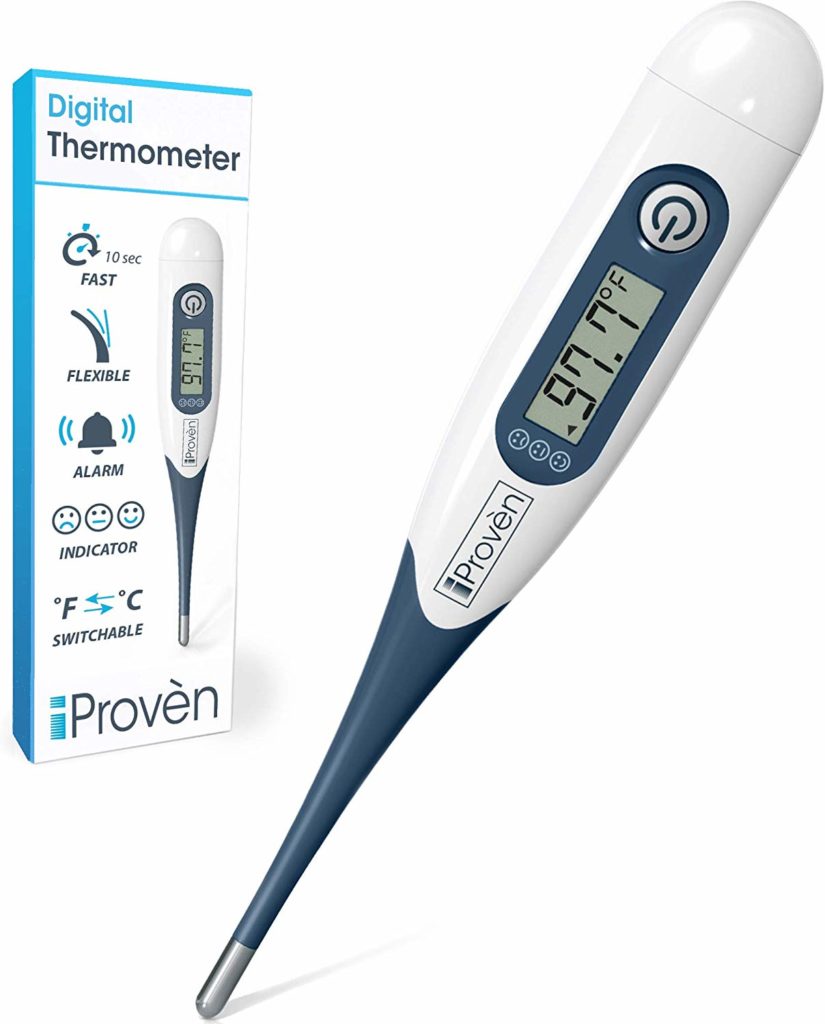
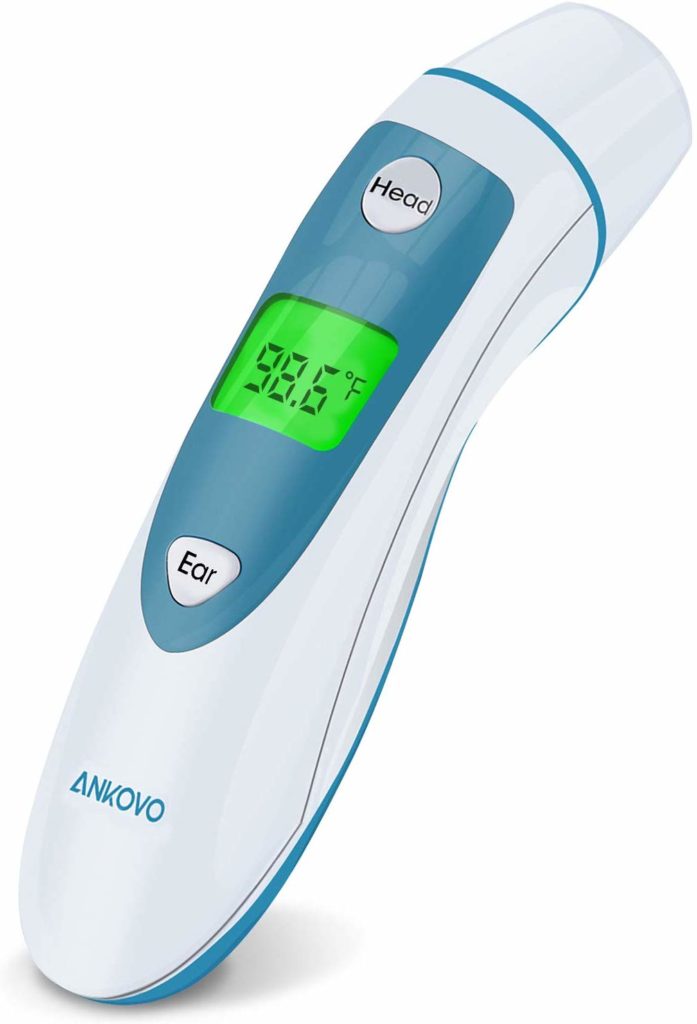
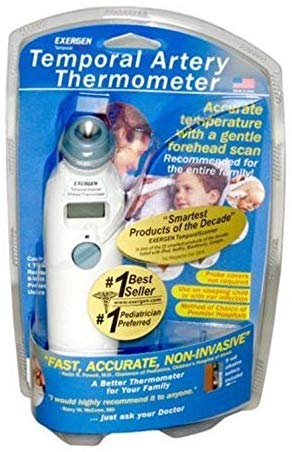
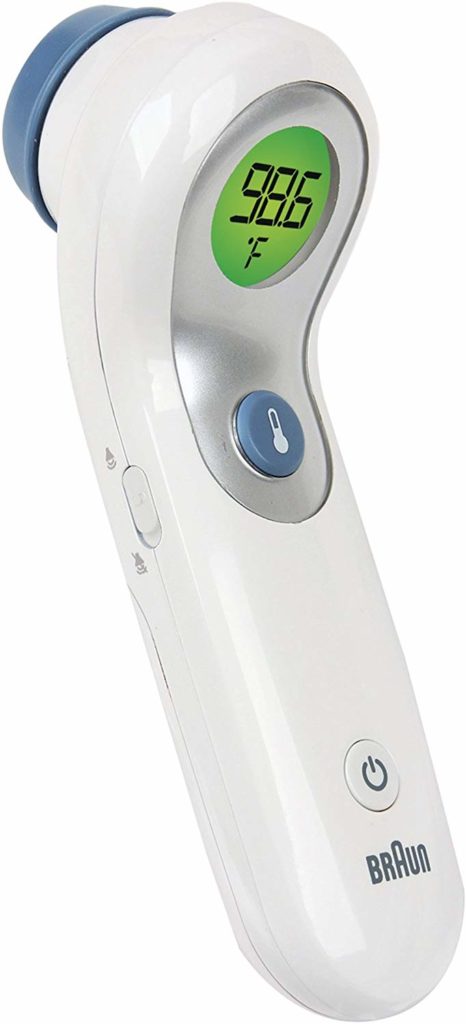
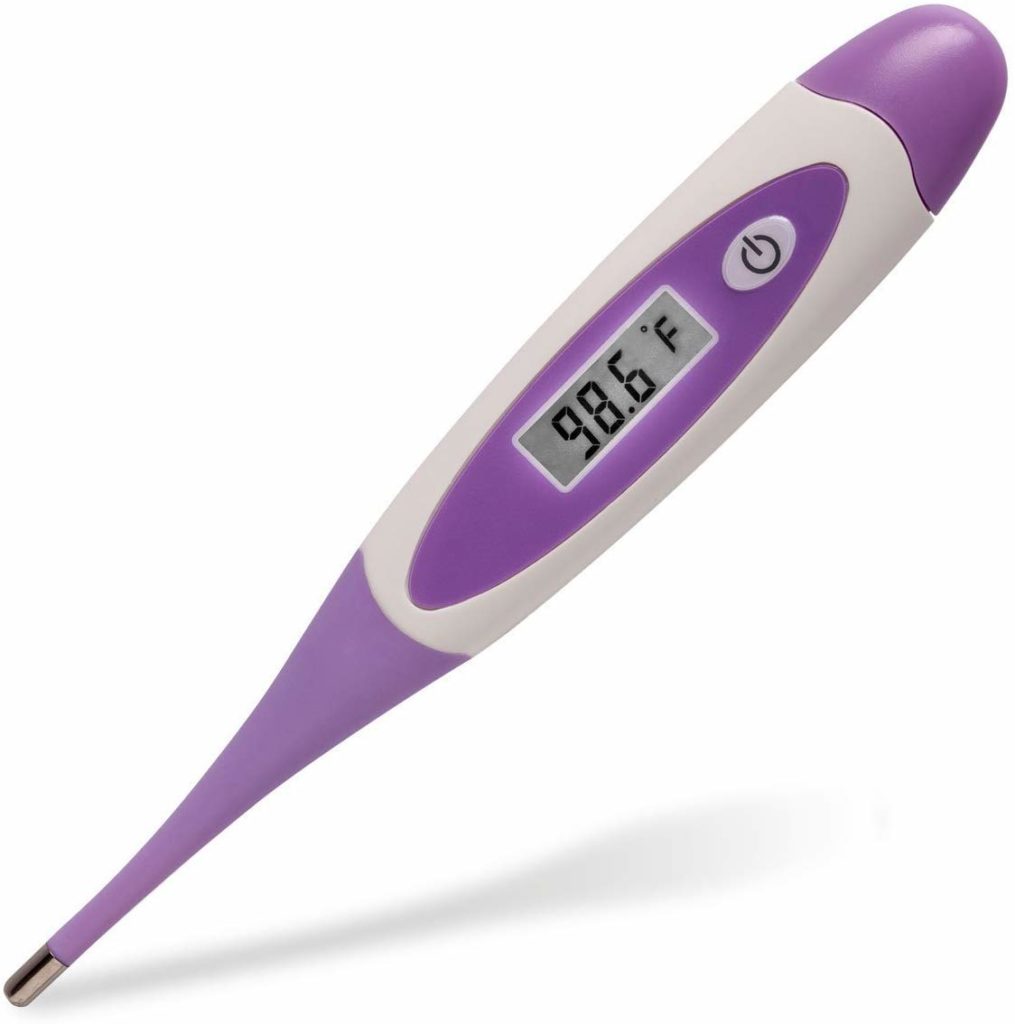

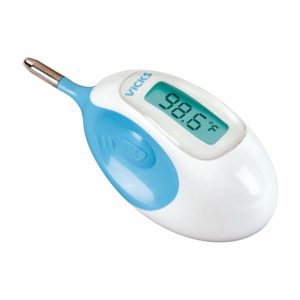
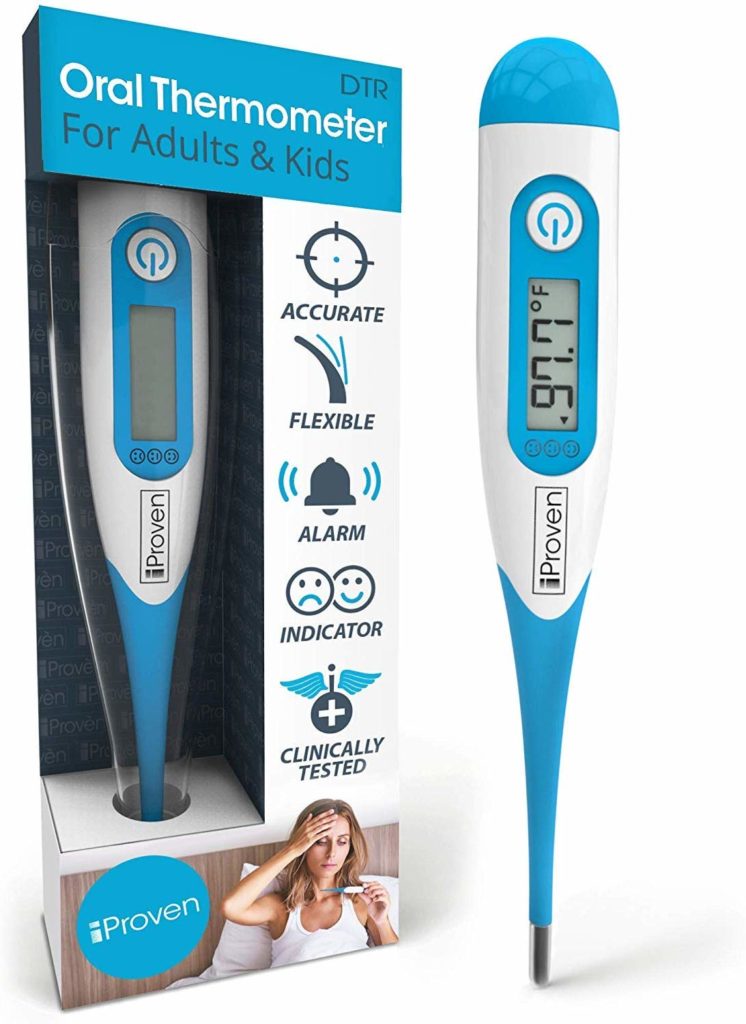
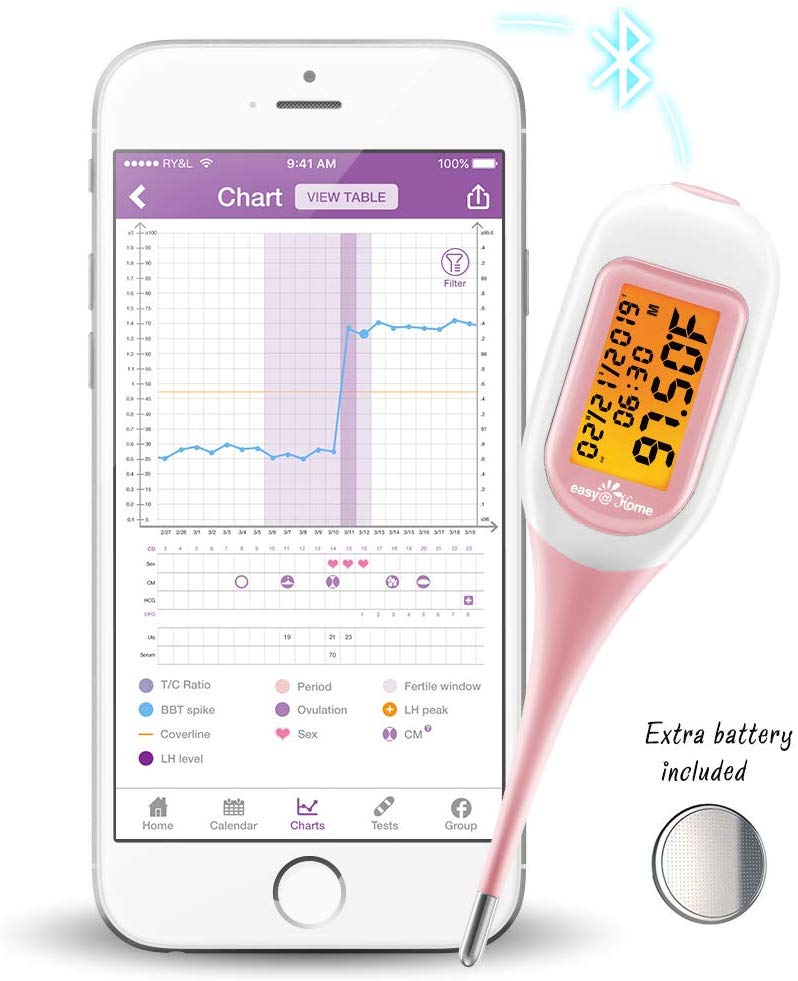
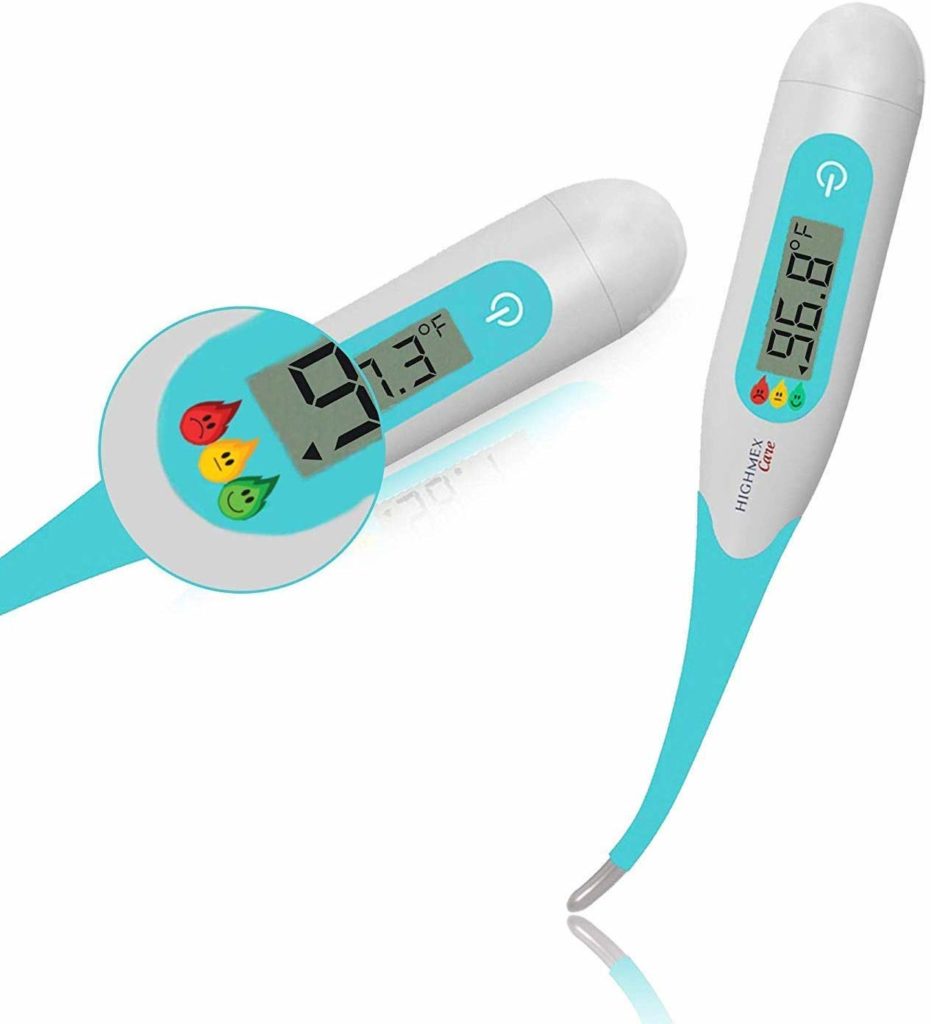
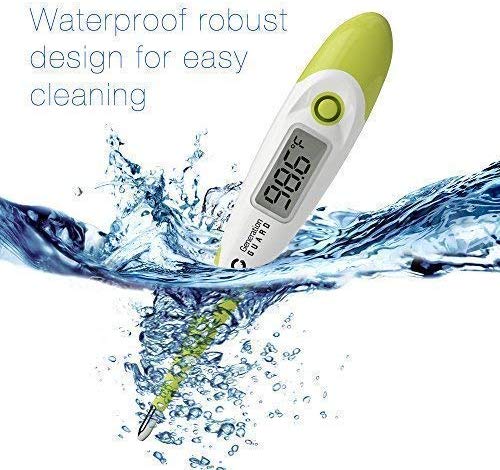
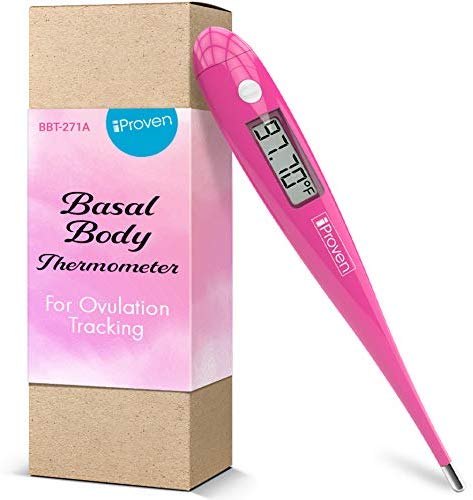
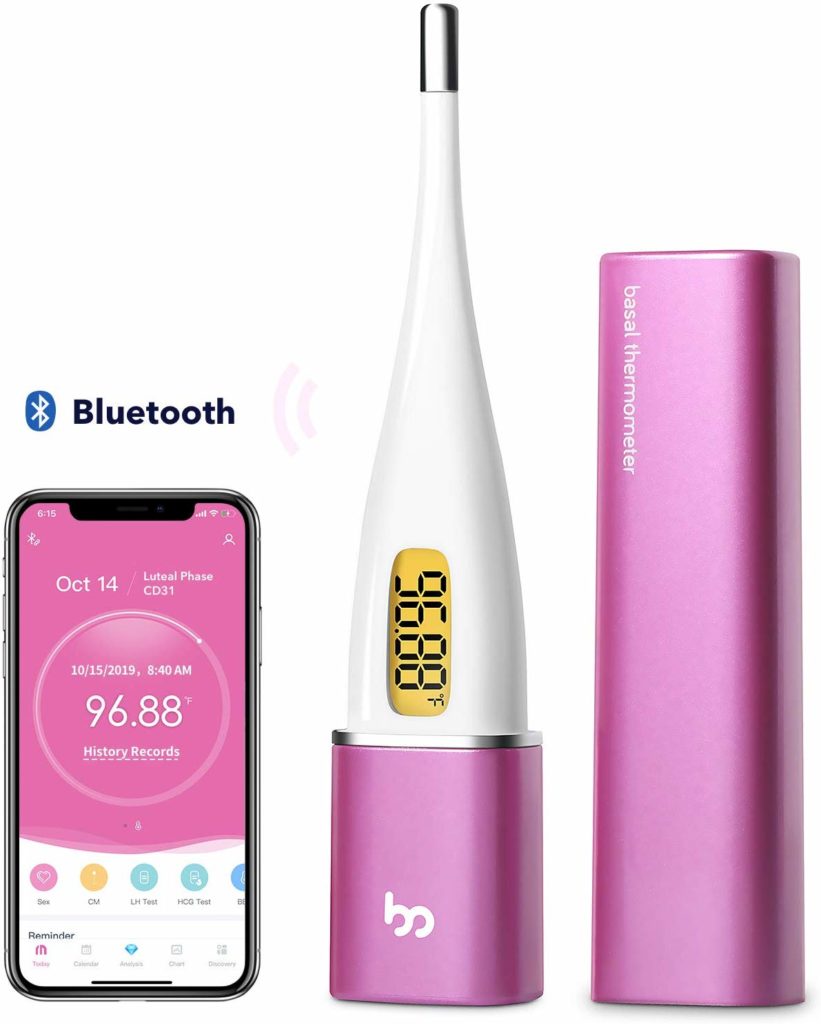
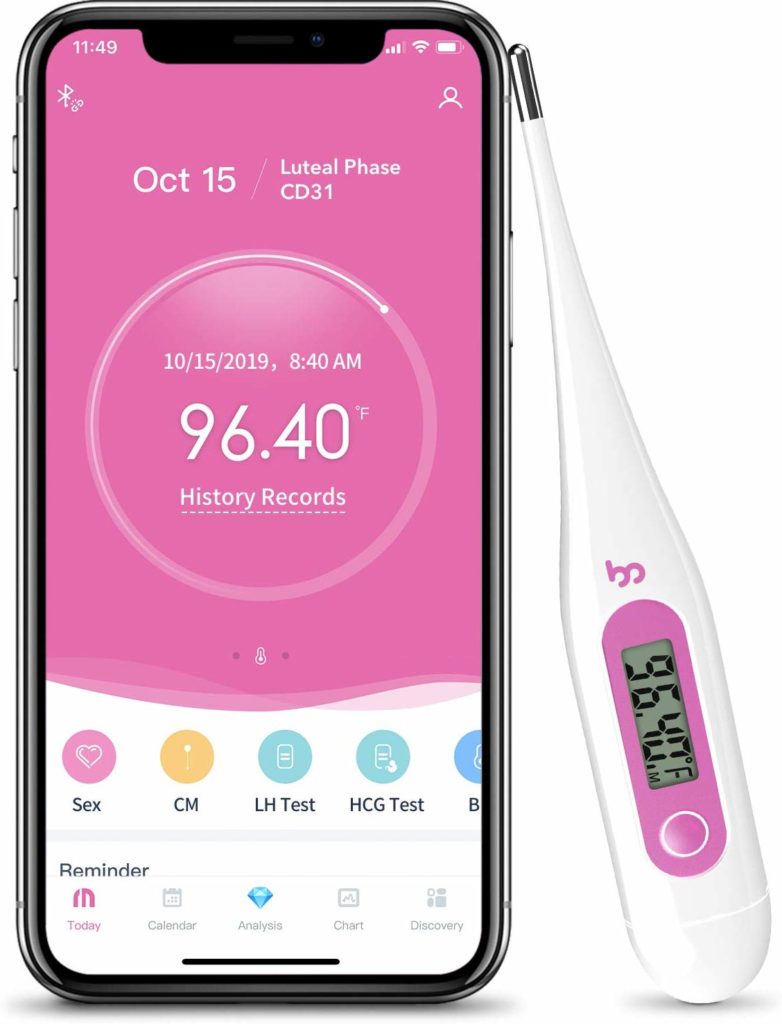
3 Comments